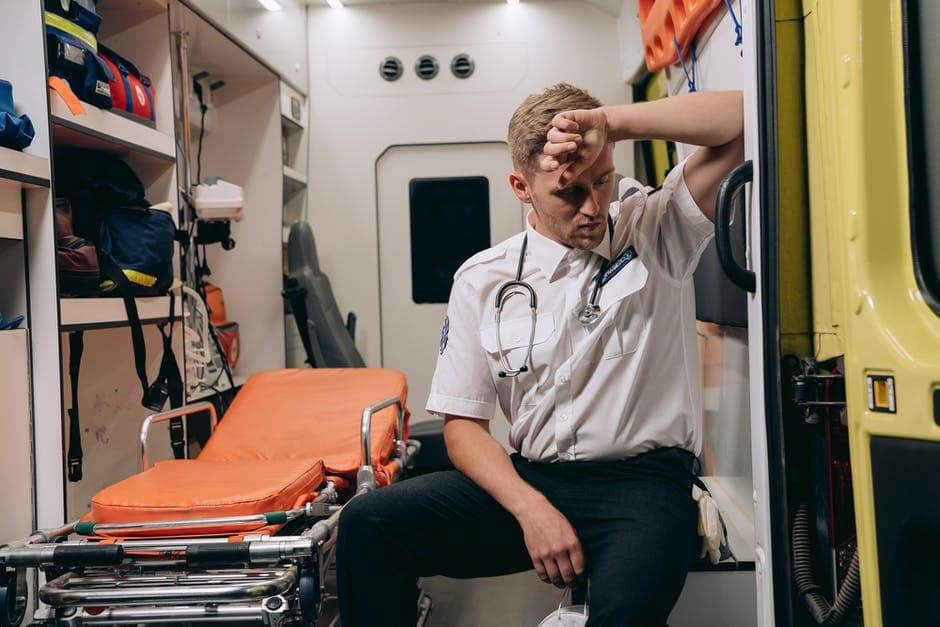To be a first responder is considered to be one of the hardest, both mentally and physically, jobs that currently exist. When tragedy strikes, first responders are there to jump into the fray, regardless of personal risk. For that reason, being a first responder is a physically demanding job on even the best of days. Current society expects first responders to perform past what is possible for a human body to sustain. As a result, many first responders suffer from preventable injuries to keep up with demands.
There is a saying out there that says that a person cannot pour anything out of an empty glass. As much as someone wants to, they cannot neglect the importance of practicing self-care and keeping themselves in good working order.
This blog will discuss tips to help those who are first responders make healthy self-care habits that will keep them running physically and mentally well.
Eat Well
Eating a well-balanced diet is one of the first steps anyone can take toward physical wellness. Having enough vitamins each day helps keep the body running smoothly. A first responder should focus on foods that will help repair damage to the body and help prevent illnesses, such as foods rich in vitamin C and zinc.
Everybody is different, so it is sometimes helpful for individuals to talk to a dietitian about what foods they should be eating to help maintain their body’s good health. Sometimes it is hard to find time to eat when on the job, so if it is possible, individuals should carry small snacks or portable protein/nutritional shakes with them.
Sleep
One of the most important ways the body heals is through good, uninterrupted sleep. As a first responder, it can be very difficult to accomplish this, especially for those on a call like firefighters or EMT workers. Continuing to practice sleep hygiene can have a positive effect on how individuals feel. Those that struggle with nightmares and other psychological issues preventing sleep (such as post-traumatic stress disorder – PTSD) should contact a mental health professional to learn how to treat such symptoms. Good sleep matters more than many may think.
Stretch and Relax
Under heavy stress, muscles tear, and joints become stiff the more they are overworked. To move around fluidly and without pain, care must be taken to keep these parts of the body in working order. For joints and stiffness, some people benefit greatly by participating in stretching exercises like yoga, either alone or in a class. Yoga has the bonus of teaching relaxation and breathing techniques, which may reduce the effects of stress. Tight, painful muscles can relax through the application of therapeutic massage with the bonus of releasing stress. Being too tense can cause damage to the body, so it is very important to find ways to relax and let the body rest.
Exercise
It may feel redundant to exercise in a job where running around and performing feats of strength and dexterity are common. However, people still need to exercise to keep themselves safe. For example, lifting an average person’s body weight continually can strain the back and cause permanent damage. That is why it is important to keep the back strong through regular workouts designed for what individuals are required to do. Learning techniques such as how to properly lift various weights will go a long way.
Beware Burnout
Society expects a lot from first responders, and burnout can be a very real thing to worry about. Pushing themselves past human limits constantly can and will hurt their bodies and minds. If it is possible, individuals should be sure to take breaks and find time off to recuperate. Nobody is a superhuman, and expecting to perform as such alone is impossible and dangerous. A well-rested and relaxed individual can do more good than someone who has not slept in days and running on fumes.
Burnout is serious, and if an individual is feeling the effects of burnout, they should contact a trusted mental health facility for information on how to treat it. There may be local support groups that exist for first responders, giving them and their families a place of support. A support network full of people who understand what first responders are vital. They will know many tips and tools to help keep first responders healthy and focused.
These are simple ways to help someone in such a demanding job stay on top of their health. With more awareness being brought to the work that first responders do, more networks of support and specialized treatment programs specifically designed for first responders are becoming more common.
Being a first responder is a difficult job to do, both mentally and physically. The expectations placed on these workers are nearly impossible to accomplish, resulting in a culture where it’s common to work oneself to the point of collapse.
However, to help others and remain safe yourself, you need to take the time to care for your mind and body to stay in peak condition. At Acera Health in Costa Mesa, California, we are here to help you achieve that balance needed to stay healthy. Society often makes reaching out for help seem like a weakness, but as a first responder, you know just how brave it can be to ask for help.
If you are a first responder or know someone who is and are concerned about their well-being, call (949) 866-3881 to speak with one of our trained professionals today.









